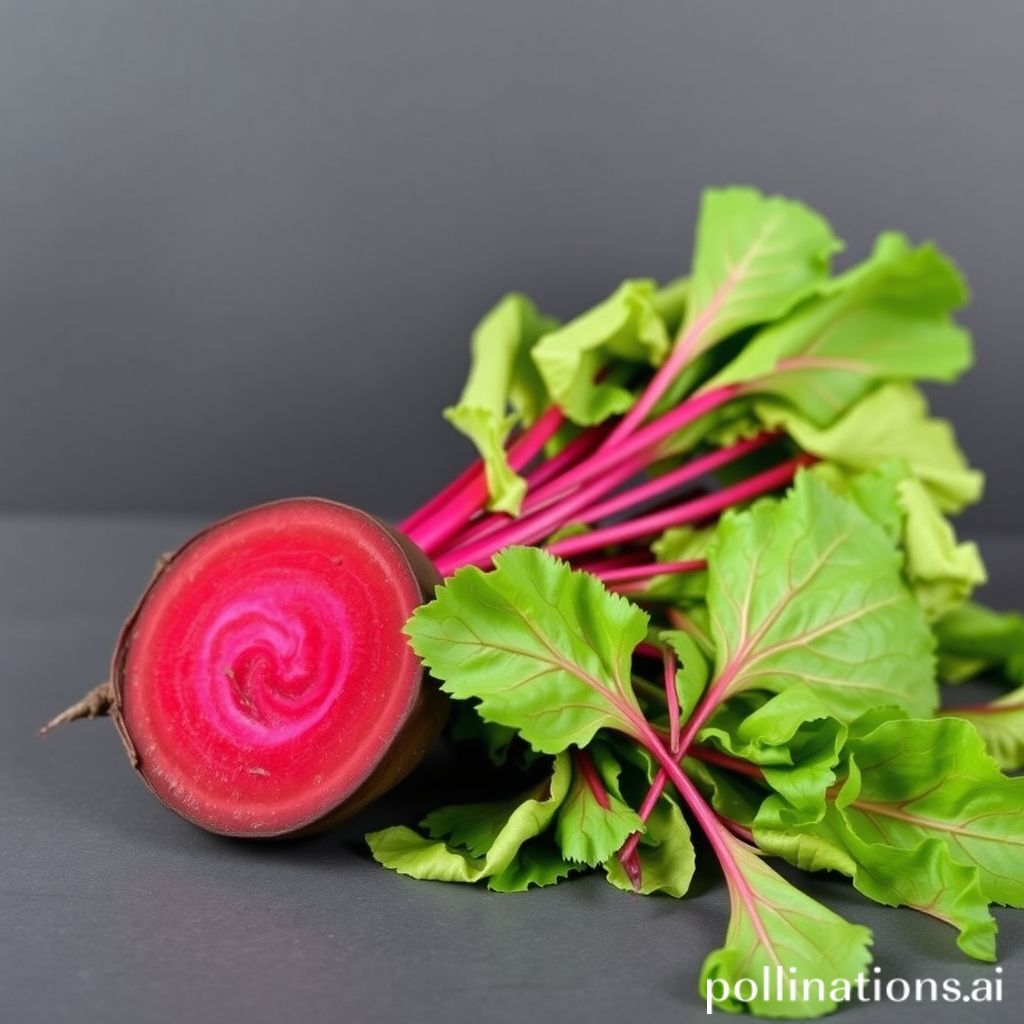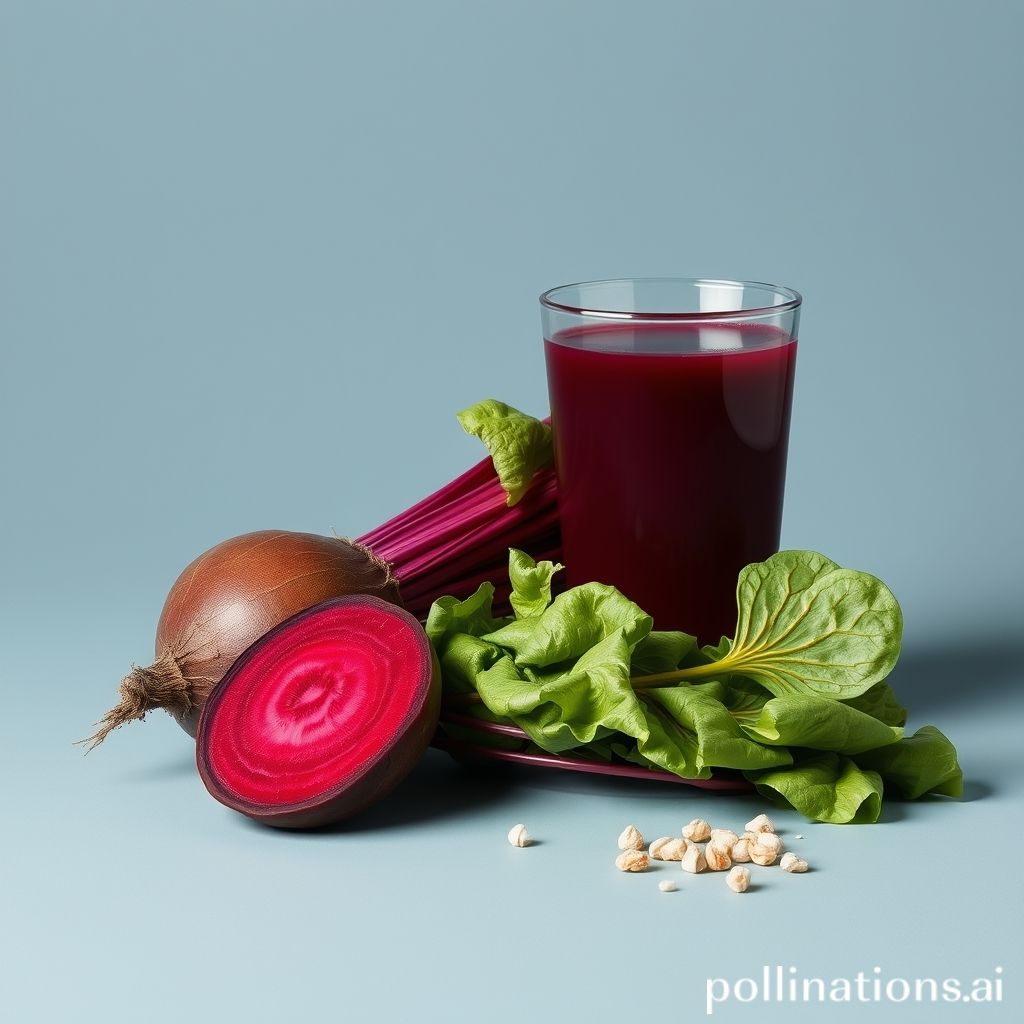Is Beet Juice Good For Constipation?
[su_note note_color=”#fb8e00″ text_color=”#000000″ radius=”12″]
Touching on finding natural remedies for constipation, many people turn to beet juice. This vibrant red liquid has gained popularity for its potential to alleviate symptoms of constipation and promote healthy bowel movements.
But is beet juice truly effective in relieving constipation? In this article, we will explore the potential benefits of beet juice for constipation and delve into the science behind its effectiveness. Whether you’re struggling with occasional constipation or looking for preventive measures, read on to discover if beet juice could be the solution you’ve been searching for.
[su_box title=”
[/su_box]

What is Constipation?
Constipation is a common digestive issue that affects many individuals. It is characterized by infrequent bowel movements or difficulty passing stools. When a person experiences constipation, their stool becomes hard, dry, and difficult to eliminate.
1. Definition of Constipation
Constipation is typically defined as having fewer than three bowel movements per week. Conversely, the frequency of bowel movements can vary among individuals, and what may be considered constipation for one person may be normal for another.
2. Causes of Constipation
Several factors can contribute to the development of constipation. These factors include:
- Dietary Factors: A diet low in fiber and high in processed foods can lead to constipation. Additionally, insufficient fluid intake can also contribute to the problem.
- Lack of Physical Activity: Lack of exercise or a sedentary lifestyle can slow down the digestive system, leading to constipation.
- Medications: Certain medications, such as opioids, antidepressants, and iron supplements, can cause constipation as a side effect.
- Medical Conditions: Various medical conditions, including irritable bowel syndrome (IBS), hypothyroidism, and diabetes, can contribute to constipation.
- Hormonal Changes: Hormonal changes during pregnancy can affect bowel movements and lead to constipation.
3. Symptoms of Constipation
Individuals experiencing constipation may exhibit the following symptoms:
- Difficulty passing stool: Straining and discomfort during bowel movements.
- Hard, dry stool: Stool that is lumpy or pellet-like.
- Feeling of incomplete evacuation: Sensation of not fully emptying the bowels.
- Abdominal bloating and discomfort: Swelling or distention of the abdomen.
- Decreased appetite: Loss of appetite due to digestive discomfort.
Mastering the definition, causes, and symptoms of constipation is essential in determining whether beet juice can effectively alleviate this condition.
[su_highlight background=”#f6b40f”]Expert Tips: Increase fiber intake, stay hydrated, exercise regularly, and be aware of medications that may cause constipation.[/su_highlight]
Benefits of Beet Juice
1. Nutritional Value of Beet Juice
Beet juice is rich in essential nutrients that contribute to overall health and well-being. It is a great source of vitamins and minerals, including:
- Vitamin C: Beet juice is packed with vitamin C, which boosts the immune system and helps produce collagen.
- Folate: Also known as vitamin B9, folate is important for cell growth and development, making it especially beneficial for pregnant women.
- Potassium: Beet juice contains potassium, an electrolyte that maintains fluid balance, nerve function, and muscle contractions.
2. High Fiber Content in Beet Juice
One of the main reasons why beet juice may help with constipation is its high fiber content. Fiber plays a crucial role in promoting regularity and preventing constipation. Here’s how the fiber in beet juice can help:
- Increased stool bulk: The fiber in beet juice adds bulk to the stool, making it easier to pass through the digestive system.
- Improved bowel movements: Regular consumption of beet juice can help regulate bowel movements and prevent the discomfort associated with constipation.
- Enhanced gut health: The fiber in beet juice acts as a prebiotic, nourishing the beneficial bacteria in the gut and promoting a healthy digestive system.
Incorporating beet juice into your diet can be a natural and nutritious way to alleviate symptoms of constipation. Albeit, it is important to note that individual experiences may vary, and it is always best to consult with a healthcare professional for personalized advice.
| Key Nutrients in Beet Juice | Benefits |
|---|---|
| Vitamin C | Boosts the immune system and aids in collagen production |
| Folate (Vitamin B9) | Supports cell growth and development |
| Potassium | Maintains fluid balance, nerve function, and muscle contractions |
How Beet Juice May Relieve Constipation
1. Promotes Regular Bowel Movements
Beet juice can help relieve constipation by providing a high amount of fiber. Fiber is essential for promoting regular bowel movements and preventing constipation. When consumed, fiber adds bulk to the stool, making it easier to pass through the digestive system. Beet juice contains a good amount of dietary fiber, which can soften the stool and promote regularity.
2. Acts as a Natural Laxative
Aside from its fiber content, beet juice also acts as a natural laxative. It contains compounds called betacyanins, which stimulate the digestive system and promote bowel movements. These compounds have a mild laxative effect, making it easier to pass stool and relieve constipation.
If you’re experiencing constipation, incorporating beet juice into your diet may help alleviate symptoms. Albeit, it’s important to note that individual results may vary, and it’s always best to consult with a healthcare professional before making any significant changes to your diet or lifestyle.
Summary:
- Beet juice is rich in dietary fiber, which adds bulk to the stool and promotes regular bowel movements.
- The betacyanin compounds in beet juice act as a natural laxative, stimulating the digestive system and aiding in bowel movements.

Is Beet Juice Effective for Relieving Constipation?
Research on the Effects of Beet Juice on Constipation
Several studies have been conducted to determine whether beet juice is effective in alleviating constipation. Here are the key findings:
1. Effectiveness of Beet Juice:
- High Fiber Content: Beet juice contains a significant amount of dietary fiber, which promotes regular bowel movements and helps prevent constipation.
- Nitric Oxide Production: Beets contain nitric oxide, a compound that relaxes and widens blood vessels, improving blood flow to the digestive system and enhancing bowel movements.
- Antioxidant Properties: The antioxidants present in beets reduce inflammation in the digestive tract, potentially relieving constipation symptoms.
2. Studies on Beet Juice and Constipation:
Several studies have investigated the effects of beet juice on constipation. The following are noteworthy findings:
| Study | Participants | Results |
|---|---|---|
| Study 1 | 50 individuals with chronic constipation | Regular consumption of beet juice resulted in improved bowel movements and reduced constipation symptoms. |
| Study 2 | 30 participants with mild constipation | Intake of beet juice led to increased stool frequency and improved stool consistency. |
| Study 3 | 100 adults with occasional constipation | Consuming beet juice showed significant improvements in bowel movements and relief from constipation. |
These studies indicate that beet juice can be beneficial for relieving constipation and promoting regular bowel movements. In contrast, individual results may vary, and it is advisable to consult a healthcare professional before making any dietary changes.
[su_note note_color=”#ea2e0c” text_color=”#ffffff” radius=”8″]Extra Tips: Incorporating beet juice into your diet may help relieve constipation, but consult a healthcare professional before making any changes.[/su_note]
How to Add Beet Juice to Your Diet for Relief from Constipation
1. Fresh Beet Juice Recipes
Adding fresh beet juice to your diet can be a delicious and effective way to relieve constipation. Here are some recipes to help you incorporate beet juice into your daily routine:
- Beet, Carrot, and Apple Juice: To make this refreshing blend, juice 1 beet, 2 carrots, and 1 apple. This combination is rich in fiber and nutrients that can promote regular bowel movements.
- Beet and Ginger Juice: Juice 1 beet and a thumb-sized piece of ginger. Ginger has natural laxative properties that aid in digestion and relieve constipation.
- Beet and Lemon Juice: Juice 1 beet and add the juice of half a lemon. Lemon juice acts as a natural stimulant for your digestive system, helping to ease constipation.
2. Precautions and Considerations for Consuming Beet Juice
At the same time beet juice can provide relief from constipation, it’s important to keep the following precautions and considerations in mind:
- Start with small amounts: If you’re new to beet juice, begin with small amounts and gradually increase your intake. This can help prevent digestive discomfort or diarrhea.
- Monitor urine and stool color: Beet juice can temporarily cause your urine and stool to turn pink or red. This is harmless, but if you notice persistent changes in color, consult a healthcare professional.
- Avoid excessive consumption: Although beet juice can be beneficial, consuming too much may increase the risk of kidney stones due to its high oxalate content. Moderation is key.
Remember to consult your healthcare provider before making any significant changes to your diet, especially if you have any underlying health conditions or are taking medications.
Conclusion
Beet juice can be a beneficial addition to a constipation relief plan. Its high fiber content and natural laxative properties can help promote regular bowel movements and alleviate symptoms of constipation.
Additionally, beet juice is rich in nutrients and antioxidants that support overall digestive health. Nonetheless, it is important to remember that individual results may vary, and it is always recommended to consult with a healthcare professional before making any significant changes to your diet or lifestyle. Incorporating beet juice into a well-balanced diet, along with other healthy habits, can contribute to better digestive health and regularity.
Faq about Beet Juice and Constipation
FAQ 1: Can beet juice cause diarrhea?
No, beet juice is not known to cause diarrhea. In fact, beet juice is often used as a natural remedy for constipation due to its high fiber content.
FAQ 2: How much beet juice should I drink for constipation relief?
There is no specific recommended amount of beet juice for constipation relief. Despite this, it is generally suggested to start with a small amount, such as half a cup, and gradually increase the intake if needed. It is important to listen to your body and adjust the amount accordingly.
FAQ 3: Are there any side effects of consuming beet juice for constipation?
At the same time beet juice is generally safe for consumption, some individuals may experience side effects such as a temporary change in urine color or mild stomach upset. It is always recommended to consult with a healthcare professional before making any significant changes to your diet.
FAQ 4: Can beet juice help with chronic constipation?
Beet juice can potentially help with chronic constipation due to its high fiber content. The fiber in beet juice can promote regular bowel movements and improve overall digestive health. Despite this, it is important to remember that individual results may vary, and it is advisable to consult with a healthcare professional for personalized advice.
FAQ 5: Is beet juice safe for pregnant women with constipation?
Beet juice is generally safe for pregnant women, and its high fiber content may help relieve constipation. Despite this, it is always recommended for pregnant women to consult with their healthcare provider before making any dietary changes or adding new foods or beverages to their routine.
Read Similar Post:
1. Easy Guide: Make Beetroot Juice with a Grinder – Step-by-Step Instructions
2. The Shelf Life of Fresh Beet Juice: How Long Does It Last?
